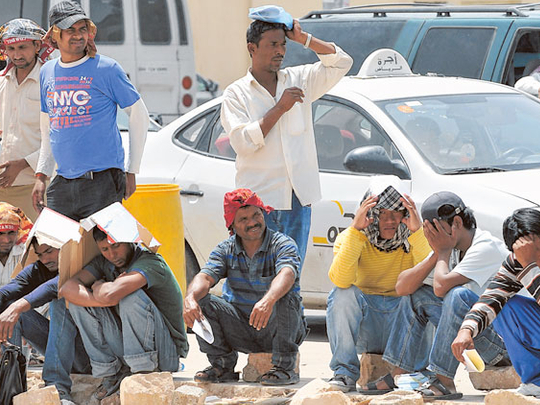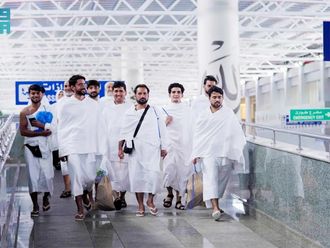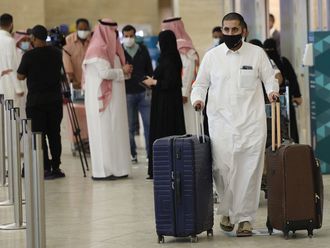
Riyadh: Every day, hundreds of illegal foreign workers, mostly South Asians, queue in the scorching heat outside an immigration office in Riyadh seeking to benefit from an amnesty to get their papers in order or leave. Earlier this year, Saudi Arabian authorities warned that illegal foreign workers risk being slapped with prison sentences and fines after a three-month grace period runs out on July 3.
Saudi Arabia also urged those whose residency permits have expired and those who are sponsored by someone other than their actual employers, in violation of the kingdom’s labour laws, to take advantage of the amnesty and avoid penalties. Tens of thousands of foreigners working illegally in Saudi Arabia or who do not have the right local sponsor are affected. With the clock ticking and the threat of mass deportations looming, they are desperately trying to regularise their situation.
More than 200,000 people, mostly Asians, have been expelled so far this year due to the new restrictions, immigration officials said. In Saudi Arabia, like most of the Gulf states, foreigners need to be sponsored by a local business to get entry and work permits. The practice of sponsoring expatriates had begun to be exploited, with unscrupulous elements selling their sponsorship to foreigners desperate to enter for work.
According to official statistics, eight million expatriates work in the kingdom. Economists say there are another two million unregistered foreign workers. The workers have been given a grace period until July 3 to get their affairs in order but many fear that they will miss the deadline because of the long wait outside the immigration office.
“I’ve been standing in line since 6 am to obtain the exit permit,” said Abdul Azim Shahid, from Bangladesh, who began to lose hope his turn would arrive as the centre’s closing time approached. The 28-year-old has been working in the kingdom for eight years.
“For the first two years I worked as a salesman to make up for the residency” fees payable to his Saudi sponsor, Shahid said.
Mozafar Sulaiman, an elderly Indian who works in a transportation company, was hoping to return to Saudi Arabia like Shahid, but complained of “abuse” of foreign workers.
“Things might improve with the new residency rules,” he said. Long queues have been seen outside the embassies of India, Bangladesh, Indonesia and the Philippines as foreign workers queue to renew expired passports. The new regulations introduced by the Labour Ministry aim to reduce the number of foreign workers to create jobs for millions of unemployed Saudis.
Although the kingdom has the largest Arab economy, the unemployment rate among Saudis is above 12.5 per cent.
Saudi Arabia has warned employers who shelter illegal workers that they will be liable to up to two years in prison if they do not toe the line. Bangladeshis, Indians, Pakistanis and Yemenis will be worst affected. Labour minister Adel Faqih has admitted that “six million foreign workers are employed in menial jobs unfit for Saudis and 68 per cent of them are paid less than 1,000 riyals (Dh979) per month.”
The majority of Saudis prefer working in the public sector where they are better paid for shorter working hours and enjoy more holidays.










